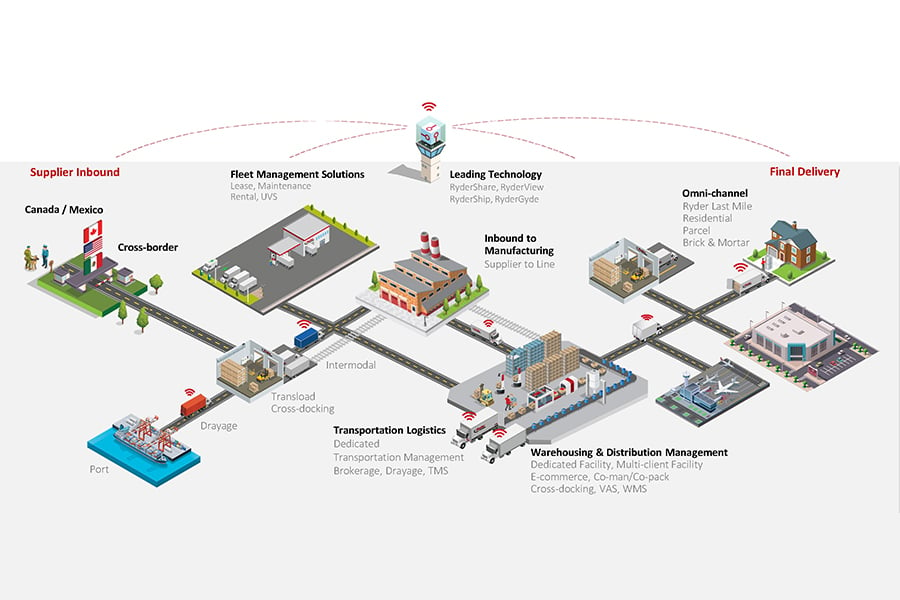Yes, Ryder is leading the industry in innovation and technology, piloting and implementing warehouse automation where it makes sense. At Ryder, we’ve extensively examined warehouse robots, goods-to-person technology, drones, wearables, and other technologies and disruptive trends to determine how they support smart warehouses, and deliver the most value to our customers while helping them stay ahead of their competitors.
Four types of innovative technologies most applicable to creating and supporting a smart warehouse have been prioritized:
1. Robotics and automation
2. Sensors and automatic identification tools
3. Wearable and mobile technology
4. Drones
When implemented correctly, these four technologies solve the 5 key attributes Ryder has identified that define a smart warehouse:
1. Automate as it makes sense economically
2. Remain nimble with space, staff, and software
3. Scale instantaneously in response to needs
4. Provide 100 percent real-time visibility
5. Use a web centric approach to run the business and provide a customer centric experience
When it comes to warehousing solutions, you can trust Ryder for making innovative, smart, and economical decisions for the storage and distribution of your products.


















